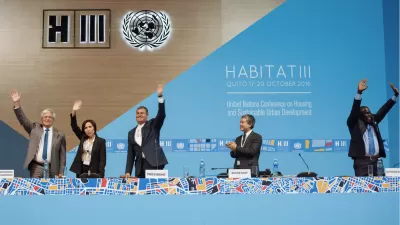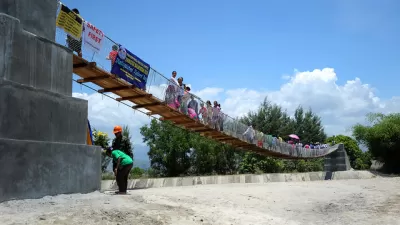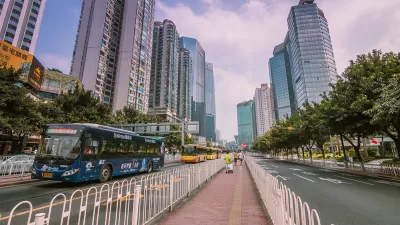The nation of Iraq is building itself anew after the last of the US troops evacuated six months ago, but experts are saying that their wealth, which has created an invasion of shopping malls around the country, is subsidizing the public agenda.
Oil production has given the country a surplus of wealth, but the country's private sector continues to suffer from malnourishment. Instead of financing new businesses and supporting the build-out of a private sector, which is virtually non-existent in the country, the accumulation of wealth has been given the task of financing the government work force, which currently employs about one-third of the nation's population. Another beneficiary of this increased revenue? Super malls. "'Basically, Iraq is trying to build a consumer society, not on state capitalism like in China, but on socialism,' said Marie-Hélène Bricknell, the World Bank's representative in Iraq."
"Given the statist mentality of most top Iraqi officials and widespread corruption," writes Arango, "diplomats are generally pessimistic that the expected boom in government revenues will be used either to help develop a private sector or to pay for an ambitious public works program - something the country, where 40 percent of the population still lacks access to safe drinking water, desperately needs. Instead, experts worry it will finance more of what Iraq already has: corruption and a huge government work force."
This increasingly skewed spread of wealth essentially robs the nation from the ability to support itself, by not providing basic needs and services or nourishing a self-sustaining working class. "Building a consumer society on top of nothing is like building a bubble that will burst in the future," Ms. Bricknell said. With the shopping malls, she said, "you are putting a veneer over a rotting core, basically."
Arango, sensing a storm brewing ahead, is not optimistic for future conditions in Iraq, and claims that history may be repeating itself. "In 'The Modern History of Iraq,' he writes, "the American historian Phebe Marr described a similar trajectory in the 1970s when, she wrote, 'the era of prosperity rapidly created a consumer society dependent on government employment.'"
FULL STORY: Oil Wealth Returning, Iraq Sees Malls Rise

Planetizen Federal Action Tracker
A weekly monitor of how Trump’s orders and actions are impacting planners and planning in America.

Chicago’s Ghost Rails
Just beneath the surface of the modern city lie the remnants of its expansive early 20th-century streetcar system.

San Antonio and Austin are Fusing Into one Massive Megaregion
The region spanning the two central Texas cities is growing fast, posing challenges for local infrastructure and water supplies.

Since Zion's Shuttles Went Electric “The Smog is Gone”
Visitors to Zion National Park can enjoy the canyon via the nation’s first fully electric park shuttle system.

Trump Distributing DOT Safety Funds at 1/10 Rate of Biden
Funds for Safe Streets and other transportation safety and equity programs are being held up by administrative reviews and conflicts with the Trump administration’s priorities.

German Cities Subsidize Taxis for Women Amid Wave of Violence
Free or low-cost taxi rides can help women navigate cities more safely, but critics say the programs don't address the root causes of violence against women.
Urban Design for Planners 1: Software Tools
This six-course series explores essential urban design concepts using open source software and equips planners with the tools they need to participate fully in the urban design process.
Planning for Universal Design
Learn the tools for implementing Universal Design in planning regulations.
planning NEXT
Appalachian Highlands Housing Partners
Mpact (founded as Rail~Volution)
City of Camden Redevelopment Agency
City of Astoria
City of Portland
City of Laramie





























